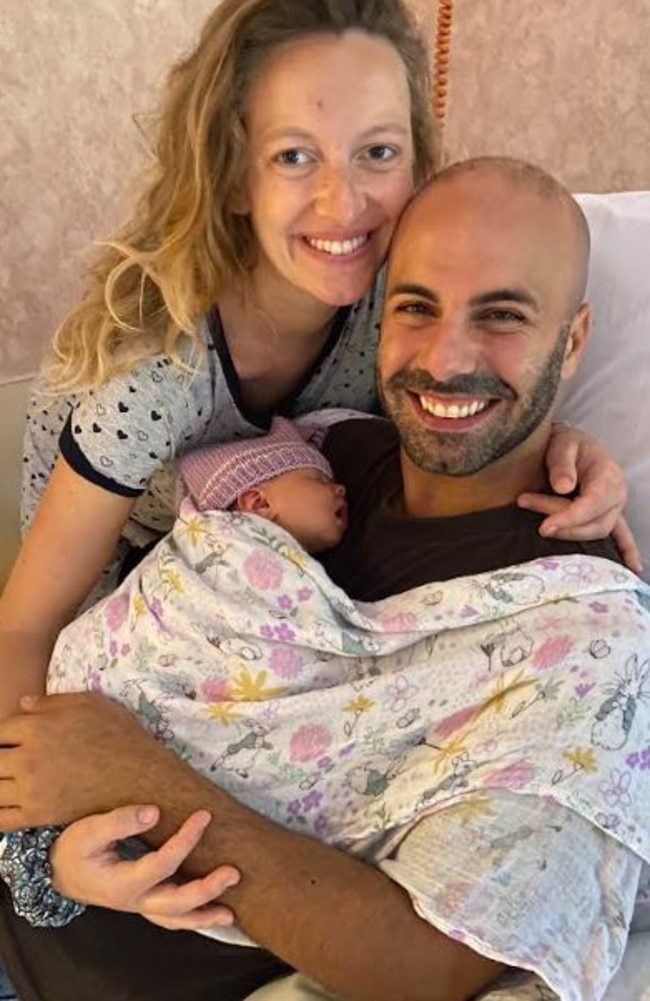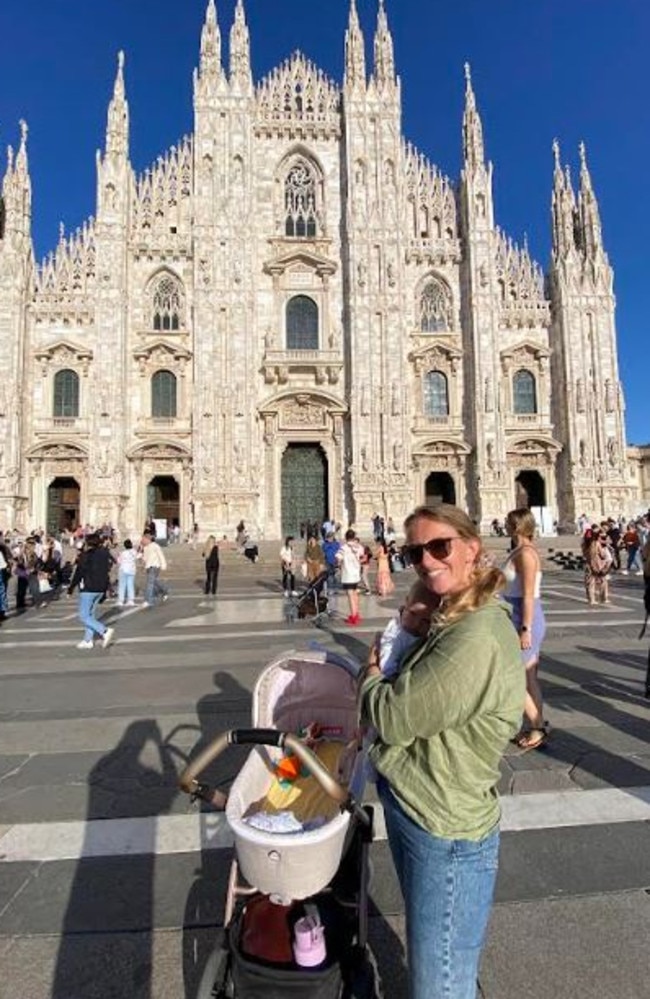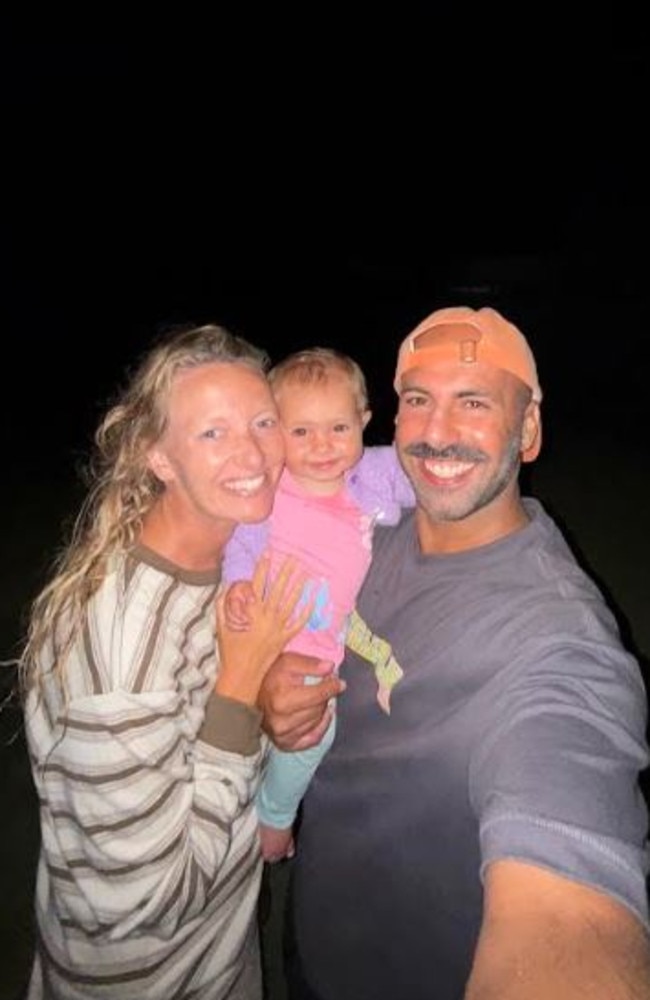‘I gave birth in Italy – here is why it is a wildly different experience than Australia’
An Australian mum who gave birth overseas has revealed the wildly unique way they treat pregnancy in Italy.
The anaesthetist finally arrives, a young woman with an assistant.
She is memorably attractive; high, sharp cheekbones, almond obsidian eyes, nicotine scent. She looks at my husband incredulously.
“Tu,” she flicks her perfectly polished fire red nails at him. You.
He utters a bewildered, “si?”. ‘Devi uscire’, she says nonchalantly.
You must leave.
“Uscire?”, he asks bewildered. Leave?
“Dobbiamo fare l’epidurale. Signore, perché non va al bar e prende una brioche e cappuccino?”
We must do the epidural. Why don’t you go to the bar and get a brioche and cappuccino?
Amid arguably one of the most pivotal moments in our life, my husband is invited, in true Italian fashion, to take “una pausa”.

He is not the only one, other stunned and overtired fathers to-be are also being bossed out of their delivery rooms, already reaching for the cigarettes in their back pockets as they scurry quickly from the ward.
This country does not let birth get in the way of a coffee, food or a smoke break. It takes a village to raise a child.
What if that village is culturally different, diverse? They don’t speak the same language; the milieu and nuances are foreign and the methodology and practice behind raising and birthing a child is somewhat at odds with what you perceive to know?
Childbirth abroad is daunting, so is motherhood. Yet, I had chosen to give birth in Italy, a country that valued the ‘Madonna’, pleasure and children above all else.
Surely, it would be, ok? Italy is a country defined by its women, and most importantly, its mothers.
The ‘Madonna and Child’ are the crux and nucleus of their Catholic faith, the Holy Trinity a profound and sacred union, their image adorns shops, cafes, street corners and bars.
Despite being an Australian, I knew I would be in safe hands giving birth to my first child in a country which placed high prominence on these values.

The process around pregnancy, and then childbirth is meticulous, precise and ordered. In Italy, nothing is left to chance.
Out of hospital births are rare and usually by accident.
You cannot elect to have an epidural unless you have first completed an electrocardiogram.
In my third trimester, I had a prenatal appointment every week with an obstetrician, and, at every appointment, I had a scan.
I knew a lot about my baby, her movements and peculiarities. As a first-time mum, this not only offered me a lot of comfort, but joy.
During my entire pregnancy, I had weekly blood tests, check-ups, courses, exams.
Alongside this explicit grain of rules, there was a strong undercurrent of superstition and faith. I went into labour during a full moon, the hospital had rostered on extra staff to accommodate.
A full moon meant more babies.
My Italian hospital delivered on average, three babies per day. With the full moon, they delivered 20 babies.
Wheeled into the sala parto (delivery room), I am halted by an imperious and impatient dinner lady. She waves a piece of white paper in front of me.

“Signora deve scegliere il menu,” she says officiously. You must choose the menu.
“Scusi?” I exclaim. Sorry?
“Il menu per la settimana,” she explains. The menu for the week.
Mid contraction, I groan. “Perché non può scegliere dopo?” My husband asks exasperated. Why can’t she choose it later?
She shakes her head. It must be now.
“Broccoli o spinaci?” My husband starts. I growl. “Risotto o pasta?” He continues.
“I don’t care about the f**king food,” I suddenly yell in English.
Big mistake. My husband panics and chooses white rice and pasta with red sauce for the week.
He neglects the Lombardian delicacies of cotoletta alla Milanese, polenta with gorgonzola, risotto funghi or pizza.
Instead, my first meal after giving birth will be an unappetising plate of white rice and anaemic, mangled broccoli.
What was the point in giving birth in Italy if the food was going to be so unappetising and sad?

Childbirth and motherhood are a good indicator of a country’s cultural position, approach and perception of their women.
In Italian pre and post-natal care, there is a heavy emphasis on the mother.
The mother must eat (the imperious dinner lady and her insistence on the food), the mother must rest (in the hospital, newborns are often taken away during the evenings to the nursery, so the mothers can sleep), visitors and partners are not allowed to stay overnight at the hospital, everyone must leave by 8pm, and partners are asked to leave during any medical interventions in labour, for example, an epidural.
Compared to Australia, this attitude may shock or surprise.

I was told that my husband wouldn’t be allowed to accompany me if I had to have a caesarean, for example (he would have to wait outside), but it is also an example of a country that places their idea of motherhood at their centre, no matter how old fashioned this interpretation may seem.
Suddenly, there is a commotion in the corridor. My husband runs and opens the door.
A flurry of doctors and nurses saunter past gossiping. I spot the hospital priest in black casual robes.
He looks excited. What could it be now?
A famous Italian footballer is about to have his fourth child, his wife is preparing, and he is prowling the corridors.
“Mamma Mia!”
More Coverage
It seems nothing gets in the way of Italians and their football. Neither religion, mothers, food nor babies.
And certainly, above all else, childbirth.
Catherine McMaster is a freelance writer





